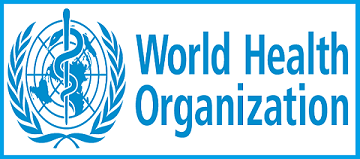 منتديات إنما المؤمنون إخوة (2024 - 2010) The Believers Are Brothers (إسلامي.. ثقافي.. اجتماعي.. إعلامي.. علمي.. تاريخي.. دعوي.. تربوي.. طبي.. رياضي.. أدبي..) |
    |
(وما من كاتب إلا سيبلى ** ويبقى الدهر ما كتبت يداه) (فلا تكتب بكفك غير شيء ** يسرك في القيامة أن تراه)
قال الفيلسوف توماس كارليل في كتابه الأبطال عن رسول الله -صلى الله عليه وسلم-: "لقد أصبح من أكبر العار على أي فرد مُتمدين من أبناء هذا العصر؛ أن يُصْغِي إلى ما يظن من أنَّ دِينَ الإسلام كَذِبٌ، وأنَّ مُحَمَّداً -صلى الله عليه وسلم- خَدَّاعٌ مُزُوِّرٌ، وآنَ لنا أنْ نُحارب ما يُشَاعُ من مثل هذه الأقوال السَّخيفة المُخْجِلَةِ؛ فإنَّ الرِّسَالة التي أدَّاهَا ذلك الرَّسُولُ ما زالت السِّراج المُنير مُدَّةَ اثني عشر قرناً، لنحو مائتي مليون من الناس أمثالنا، خلقهم اللهُ الذي خلقنا، (وقت كتابة الفيلسوف توماس كارليل لهذا الكتاب)، إقرأ بقية كتاب الفيلسوف توماس كارليل عن سيدنا محمد -صلى الله عليه وسلم-، على هذا الرابط: محمد بن عبد الله -صلى الله عليه وسلم-.
يقول المستشرق الإسباني جان ليك في كتاب (العرب): "لا يمكن أن توصف حياة محمد بأحسن مما وصفها الله بقوله: (وَمَا أَرْسَلْنَاكَ إِلَّا رَحْمَةً لِّلْعَالَمِين) فكان محمدٌ رحمة حقيقية، وإني أصلي عليه بلهفة وشوق".
فَضَّلَ اللهُ مِصْرَ على سائر البُلدان، كما فَضَّلَ بعض الناس على بعض والأيام والليالي بعضها على بعض، والفضلُ على ضربين: في دِينٍ أو دُنْيَا، أو فيهما جميعاً، وقد فَضَّلَ اللهُ مِصْرَ وشَهِدَ لها في كتابهِ بالكَرَمِ وعِظَم المَنزلة وذَكَرَهَا باسمها وخَصَّهَا دُونَ غيرها، وكَرَّرَ ذِكْرَهَا، وأبَانَ فضلها في آياتٍ تُتْلَى من القرآن العظيم.
المهندس حسن فتحي فيلسوف العمارة ومهندس الفقراء: هو معماري مصري بارز، من مواليد مدينة الأسكندرية، وتخرَّجَ من المُهندس خانة بجامعة فؤاد الأول، اشْتُهِرَ بطرازهِ المعماري الفريد الذي استمَدَّ مَصَادِرَهُ مِنَ العِمَارَةِ الريفية النوبية المَبنية بالطوب اللبن، ومن البيوت والقصور بالقاهرة القديمة في العصرين المملوكي والعُثماني.
رُبَّ ضَارَّةٍ نَافِعَةٍ.. فوائدُ فيروس كورونا غير المتوقعة للبشرية أنَّه لم يكن يَخطرُ على بال أحَدِنَا منذ أن ظهر وباء فيروس كورونا المُستجد، أنْ يكونَ لهذه الجائحة فوائدُ وإيجابيات ملموسة أفادَت كوكب الأرض.. فكيف حدث ذلك؟!...
تخليص الإبريز في تلخيص باريز: هو الكتاب الذي ألّفَهُ الشيخ "رفاعة رافع الطهطاوي" رائد التنوير في العصر الحديث كما يُلَقَّب، ويُمَثِّلُ هذا الكتاب علامة بارزة من علامات التاريخ الثقافي المصري والعربي الحديث.
الشيخ علي الجرجاوي (رحمه الله) قَامَ برحلةٍ إلى اليابان العام 1906م لحُضُورِ مؤتمر الأديان بطوكيو، الذي دعا إليه الإمبراطور الياباني عُلَمَاءَ الأديان لعرض عقائد دينهم على الشعب الياباني، وقد أنفق على رحلته الشَّاقَّةِ من مَالِهِ الخاص، وكان رُكُوبُ البحر وسيلته؛ مِمَّا أتَاحَ لَهُ مُشَاهَدَةَ العَدِيدِ مِنَ المُدُنِ السَّاحِلِيَّةِ في أنحاء العالم، ويُعَدُّ أوَّلَ دَاعِيَةٍ للإسلام في بلاد اليابان في العصر الحديث.
أحْـلامٌ مِـنْ أبِـي (باراك أوباما) *** |
|

